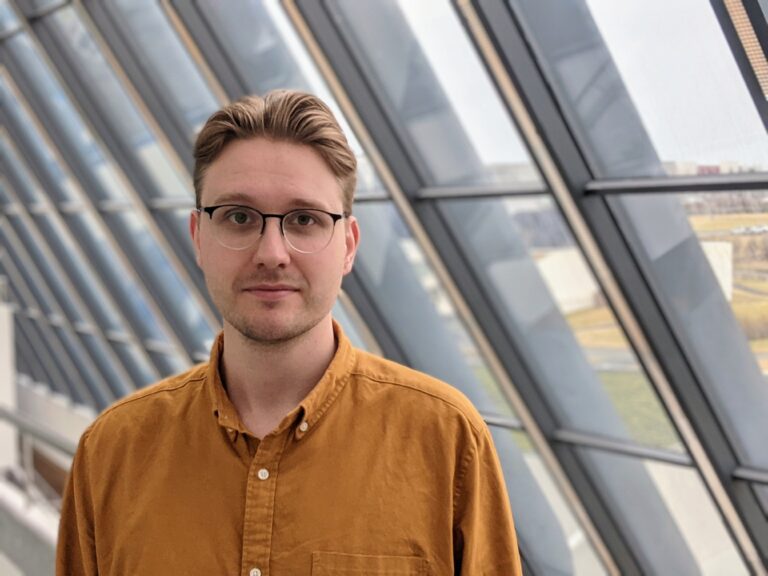New chair of Samtökin ´78 says its maybe time for Iceland to apologize for behavior during the AIDs epidemic.
Has Iceland really acknowledged and atoned for its behavior during the AIDs crisis?
Approaching the topic with sensitivity, Álfur Birkir, the new chair of Samtökin ’78, the queer organization of Iceland, ponders if Iceland and Samtökin ‘78 have really addressed and apologized for behavior during the AIDs epidemic. He also thinks that maybe now is the time for this to be addressed. “We just have this unfinished business, so to speak, with the 1990s. I mean, the 90s in Iceland were just not an easy time for gays and lesbians in to say the least. It was a horror. I can’t describe it because I wasn’t there but we need to do something to close that circle, to resolve that history because it’s such a huge part of our history [as queer people and Icelanders].”
“The wounds need to be addressed. It’s a difficult thing to even put into words.”
When asked what closing the circle would mean, a monument, a ceremony, an apology, Álfur says “I don’t know what the answer is but I think it needs to be from within. I’m open to ideas. I think the people who were there during the crisis need to choose the best way to do it because it’s their life, they were there, their history. It’s only my history by proxy, not firsthand.”
In a way, covid has put the HIV crisis in a new light or at least helped reexamine its impact. With a society-wide virus it was easy to see how quick the medical community reacted to find a solution, in stark contrast to the AIDs pandemic response. When the delta variant broke out amongst gay men partying in Provincetown, Massachusetts, they were ready with excel spreadsheets of information and contact tracing. After all, this specific subset of a generation has dealt with viral infections in their community before.
Álfur agrees. “During the aids crisis it was a gay disease so no one really had to care, right? Only us. But when covid 19 broke out suddenly it was a society-wide problem. No one was going out, no one was going to school, no one was doing anything. It was “we’re just going to finish this together.” We also had infection shaming with covid, like with HIV. The stigmatization. I mean, it’s wild. These are viral diseases, of course, some people are going to get them. That’s how viral diseases work. So we see how society really did us wrong [back in the 90’s].”
Even talking about the AIDs crisis decades later is difficult. Álfur pauses reflecting on a recent speech. “Listening to Einar Þór Jónsson (the chair person of HIV Iceland), who was awarded the Honor of Samtökin ’78, I mean…. (reflects). HIV just left a serious scar on our society. Understandably. But that trauma hasn’t been addressed enough, I feel. And I can’t address it, cause it’s not my trauma. There’s an opportunity now though, and in years to come, to try to address that as a community. Samtökin ’78 and the queer community kind of pushed people out at the time and we need to address that. Atone for that.”
Then there’s the apology that we’ll probably never get from society or from government. Álfur concurs. “Society as a whole was hellish towards us. At Landsþing (a conference for the queer community) recently I was listening to some of the descriptions. You tested positive for HIV. You were cast out from the gay community and from society at large. From your family. And then you’re trying to get home with your friends, who may also be positive, and you were beaten when you got out of your taxi because someone knew you had HIV or that you were gay.”
“HIV just left a serious scar on our society. Understandably. But that trauma hasn’t been addressed enough, I feel.”
“Even taking out the social stigma and everything, the fact that like society didn’t really do that much to stop the spread of HIV [that there wasn’t an immediate reaction from the medical community]. Luckily today we have amazing medications and it’s just a completely different infection compared to how it was 30 years ago. That’s something. I mean, in a way I think that’s why it’s time we reassess this and go over this. It’s a 40-year history of ups and downs,” he continues.
The queer community was hypersensitive to the ups and downs of covid and how those compared with life in the 80’s and 90’s. Of course science was at a different stage then (we didn’t have cheap, free QR code rapid tests on every corner for HIV) but looking back it’s hard not to see the gay community being the guinea pig of viral diseases and the knowledge that the scientific community gained from our suffering. Great doctors and scientists did eventually find treatment and therapies for HIV, but it’s hard not to notice the difference in response. One pandemic was left as a disease of the gays while the other stopped the global economy and moved mountains.
Álfur finishes by offering a possible way to address things. “We’ve had this church project where we’ve been gathering stories of LGBTQIA+ people’s experiences with the church. That’s completely on our grounds and coming from us. There’s something beautiful about that. Maybe we can take that sentiment and apply it. There’s just so much in our history and in the history of the organization that doesn’t need to be ‘closed’ as in ‘forgotten about’ but the history needs to be passed on. The wounds need to be addressed. It’s a difficult thing to even put into words,” Álfur says.
Read the full length interview with the new chair of Samtökin ’78 here.


